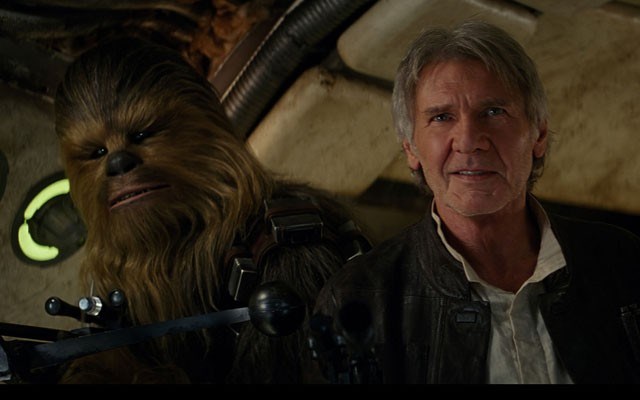Star Wars Episode VII: The Force Awakens hits screens next week (Friday, Dec. 18). All over the globe, middle-aged parents are scrambling to bring their children up to speed on the story thus far.
Star Wars one to six (or as my kid calls them, "The three crappy ones and the three good ones") aren't available to rent on iTunes and Whistler's last video store has been closed for quite some time so parents are faced with a very Star Wars-ian dilemma.
They can pay $125 to buy the films off iTunes, or they can choose the Dark Side and cyber-jack a pirated copy from somewhere deep in the cosmos. Everyone knows the Dark Side of the Force is wrong (and you might get your arm chopped off), but regardless of whether you've got an original trilogy three-pack VHS collection on the shelf or not, no one wants to pay actual money for "the crappy ones."
Thankfully, the Internet has a solution. In 2001 a bootleg re-edit of The Phantom Menace began popping up and kicked off a movement of fans reworking George Lucas' prequels to their own tastes. These days there are numerous "Phantom Edits" easily available online but one of the best, YouTuber Andrew Kwan's Star Wars I-III: A Phantom Edit, does away with the politics and childhood antics of The Phantom Menace altogether, beginning instead with the Darth Maul end fight to set up a plot that does away with the fodder and puts the focus where it should be: on the rise and fall of Anakin Skywalker.
Kwan's re-edit is just over two hours long (Lucas' original prequels ran 415 minutes) and there is a lot to love about the approach of this re-edit. Much has been cut but other scenes are re-ordered, extras are added and in the end Anakin Skywalker's character arc, moral struggle and ultimate betrayal feel more natural and just... better. (Warning, Kwan includes some of the cheesy romance stuff and there's a bit of Jar Jar Binks in there. But it's all reined in, works with the story, and even the most annoying alien ever actually furthers the plot once you cut away all the slapstick.)
And The Phantom Edit is free on YouTube (opt for the colour corrected version) which means you can still set up your nostalgic childhood for your kid while saving your money to purchase the classic films. In any case, next week is gonna be bonkers and, even though Disney bought Lucasfilm, it's hard not to get excited about director J.J. Abrams' take on the greatest space epic in cinematic history.
Speaking of history, we should all raise a glass to the Whistler Film Festival, which just celebrated 15 years and is truly one of the best and brightest events on the Whistler calendar. Their film selection and support of Canadian talent is always impressive but in an industry that too-often ignores females (audiences and filmmakers), it's worth noting that eight of the 46 feature films at WFF were directed by women. That's 17 per cent, while a recent study by the Centre for the Study of Women in Television and Film found that of the top 250 grossing films in 2014, women directed only seven per cent. This needs to change and we should be proud of our local festival for breaking ground on this issue with their programs. It is, after all, 2015.
Not much new happening at the Village 8 this week but In the Heart of the Sea opens and it's a Moby-Dick-origin flick made by Ron Howard (Happy Days, Apollo 13). Amid huge effects and an even huger whale, Howard's film is loosely based on a true story about a Nantucket ship destroyed by a giant sperm whale in 1820.
The event became part of the inspiration for Herman Melville's classic book but while there is plenty of seafaring action, whale attacks and sailor cannibalism in In the Heart of the Sea, it doesn't hold up to the source material. Expect lots of action and some good "lost at sea" bits but the humanity and character of Melville's writing seems to have been given a wide berth. Opportunities for thematic resonance on the brutality of whaling or man's continued addiction to burning finite resources (whale oil was a big energy source pre-oil and gas) go mostly untouched, but for a decent bit of spectacle In the Heart of the Storm will keep you occupied at least. Unless you are spending the next week at home re-editing The Hobbit trilogy into one movie: somebody do that!




